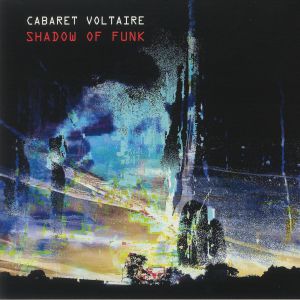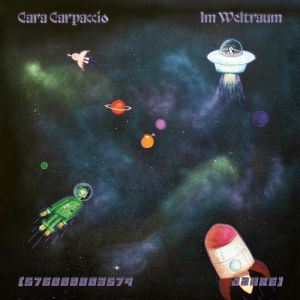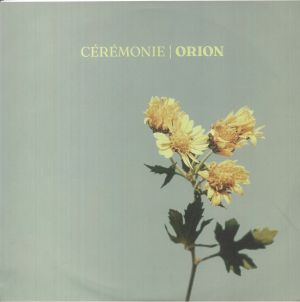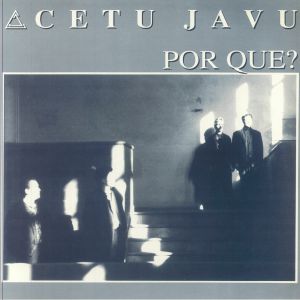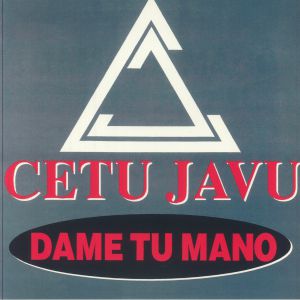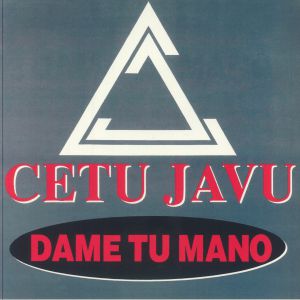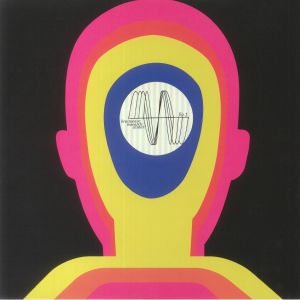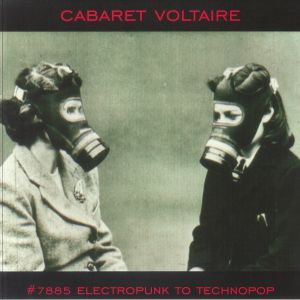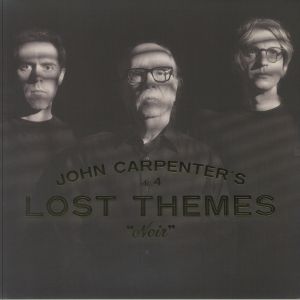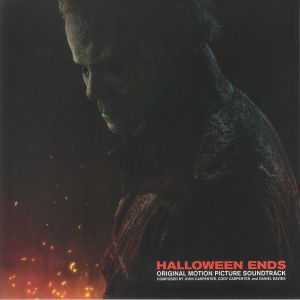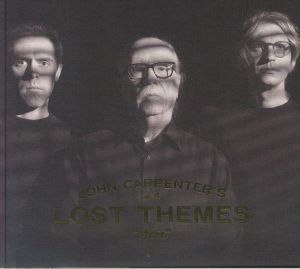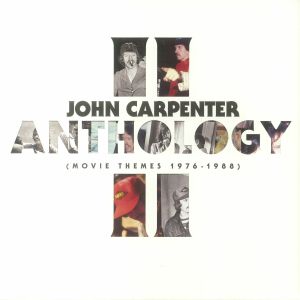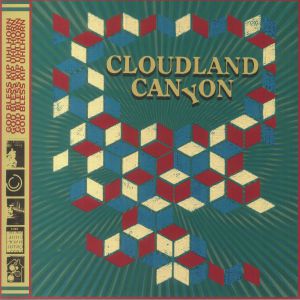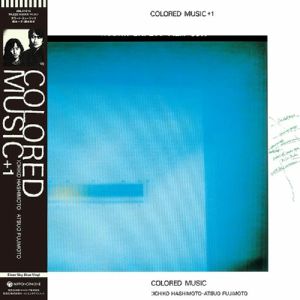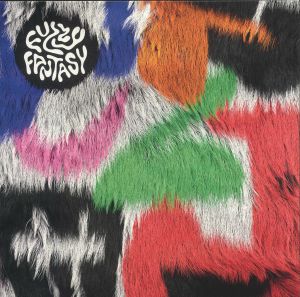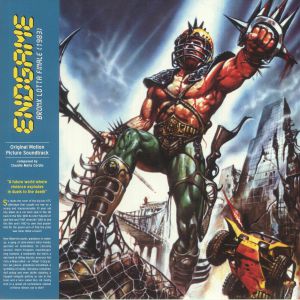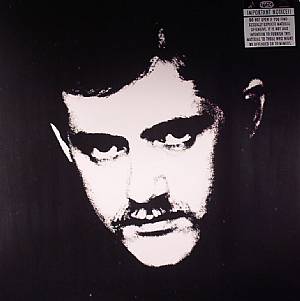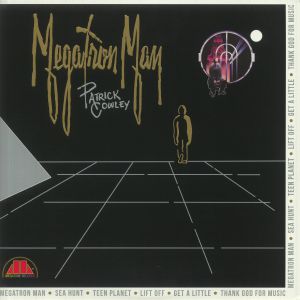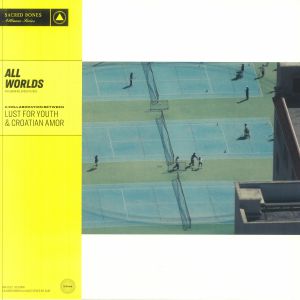Filter
Stock
Artist
Label
Featured
Release Title
Price
Tags
Back catalogue: Coldwave/Synth
Juno's full catalogue of Coldwave/Synth
Singles
Shadow Of Funk (limited transparent blue vinyl 12" + MP3 download code)
Cat: 12MUTE 622. Rel: 26 Feb 21
Review: When Cabaret Voltaire returned to the release schedule in 2020 as the one-man Richard H Kirk show, fans were relieved to find that mind-bending meld of 1970s Kosmische, techno, dub, house and space-age experimental electro was as pure as it ever has been - the results being a typically fresh and forward-thinking record the man in question summed up as "no nostalgia... normal rules do not apply. Something for the 21st Century. No old material."
Less than six months later and the big CV has more next level business to offer us, coming in the form of Shadow of Funk, a new EP that offers something of a counterpoint or extension to last year's full-length, Shadow of Fear. Based on 'Billion Dollar' alone - an acid-driven big, dark room banger that closes this EP -this release looks set to make an equally heavy impact, but as with anything this man touches, the joy is in discovery. So, let's leave it at that.
… Read moreLess than six months later and the big CV has more next level business to offer us, coming in the form of Shadow of Funk, a new EP that offers something of a counterpoint or extension to last year's full-length, Shadow of Fear. Based on 'Billion Dollar' alone - an acid-driven big, dark room banger that closes this EP -this release looks set to make an equally heavy impact, but as with anything this man touches, the joy is in discovery. So, let's leave it at that.
Intérprete: Juno Recommends Leftfield
in stock $22.68
Review: Cosmic vibes, disco roots and a touch of robot melancholy, created during a time of isolation and strange moments apparently, so channels feelings of longing and creativity into something playful and deeply human. We're told that what began as an open-ended studio session became a journey fuelled by synthesisers, with Luis adding guitar and Marabou handling gear and recording. The tracks balance nostalgia and futurism across remixes from I-f, Gerd Janson and Dan Tyler of the Idjut Boys.
… Read more in stock $15.48
Review: Ceremonie hail from France and have an '80s-inspired sound that hits differently. Their songwriting reaches new levels and draws on well-chosen, well-designed sounds with a wonderful sense of melancholy and just the right balance of drama and subtlety. After an indie-pop leaning cassette a few years ago they now land on Enfant Terrible with a contemporary take on retro new wave and synth-pop. Three of the tunes are originals, one is a cover of French 1980s new wave band Message and there is a whole new album in the works, apparently. Great stuff.
… Read more in stock $22.41
Review: Cetu Javu's iconic track 'Por Que?' (which as you probably can work out translates as why?) returns on a lovely grey marbled vinyl 12" courtesy of Blanco Y Negro Spain. A timeless classic from the late 80s and early 90s synth-pop and electronic scene, this single captures the band's signature blend of infectious melodies and emotive Spanish vocals. It's a fiery sound that is packed with melancholic undertones and driving rhythms that mean it has remained a dancefloor favourite for fans of vintage electronic sounds. This special edition offers a pristine homage to the era that takes you back in an instant.
… Read more in stock $22.96
Review: Cetu Javu's 'Dame Tu Mano' is something of a classic for lovers of early synth sounds and now it is back and reissued on grey marbled vinyl. Known for their blend of synthpop and Latin-inspired melodies, this track captures Cetu Javu's signature emotive style and irresistible sense of analogue rhythm. Originally a hit in the late 80s and early 90s, this fine single is a staple for fans of 80s beats and its great vocals also bring plenty of old-school vibes.
… Read more in stock $22.96
Review: Soanish mega-label Blanco Y Negro continues to reissue rather good, but frequently overlooked, gems from its vast archives. This one, from German-Spanish synth-pop band Cetu Javu, dates from 1992 and sees the combo combine their early Depeche Mode-esque vocals and synth sounds with nods to the more driving, peak-time ready sounds of European house music. That's best exemplified by the opening 'Remix' version of title track 'Dame Tu Mano', which also comes in the moody synth-pop style 'Extended Mix'. Over on the flip, we get the chiming melodies, mid-80s Pet Shop Boys grooves and Euro-dance bleeps of 'Una Mujer (remix)' and the Bobby Orlando-meets-Shep Pettibone fun of 'Tempo (remix)'.
… Read more in stock $22.96
Álbumes
Fig 1 (LP + MP3 download code limited to 200 copies)
Cat: BRC 01. Rel: 23 Jan 23
Review: Fresh, warm and spontaneous - brainwave research center's eight track debut album is everything that electronic music sometimes forgets to be. Recorded and produced in the back of Smith's synthesizer/electronic repair shop, Specs Sales & Repair, in Greenpoint, Brooklyn, the project is a joint collaboration between NYC-based house/techno producer, Chase Smith (W.T. Records, Apartment, is/Was), & documentary filmmaker, Christa Majoras (School of Visual Arts).
Described as a distillation of influences from experimentalism of Steve Reich, Laurie Spiegel and Black Dice, the 90s ambient techno of The Orb and Pete Namlook/Fax and more motorik flavours like Kraftwerk, Suicide, Manual Gottsching, it's a gentle but lively affair from the Art Of Noise-esque 'ah ah ah ah ah' and bubbling jam 'Bird Brain' to the epic arpeggios v guitar closer 'Day Dreaming'. This is first of four releases that the artist has planned, but there's certainly enough here to get your teeth into for now.
… Read moreDescribed as a distillation of influences from experimentalism of Steve Reich, Laurie Spiegel and Black Dice, the 90s ambient techno of The Orb and Pete Namlook/Fax and more motorik flavours like Kraftwerk, Suicide, Manual Gottsching, it's a gentle but lively affair from the Art Of Noise-esque 'ah ah ah ah ah' and bubbling jam 'Bird Brain' to the epic arpeggios v guitar closer 'Day Dreaming'. This is first of four releases that the artist has planned, but there's certainly enough here to get your teeth into for now.
in stock $15.48
Review: London's legendary Mute institution goes back to its roots and digs up some of the best work by one of the UK's finest Cabaret Voltaire. These guys don't really need an introduction give the fact that they're pretty much responsible for the rise of post-punk right through to the birth of techno. It was about time a new compilation of their stuff was released, especially one as brutally on-point as this one! All the classics such as "Nag Nag Nag", "Kneel To The Boss" and "On Every Other Street" are one here but the more obscure rarities that were previously only available on 7" are the real winners. "Just Fascination", for example, is one you'll certainly want on a longer, re-mastered cut! Downright essential!
… Read moreIntérprete: Juno Recommends Experimental, Snuffo
in stock $21.86
Review: Is John Carpenter the best soundtrack composer of all time? The jury will always be out on that one, but chances are if you're reading this you'd prefer to tuck into the score to Assault On Precinct 13 than the pomp and pageantry of, say, John Williams or Hans Zimmer. Not that we don't have a huge amount of time for both those maestros, too. Lost Themes IV: Noir isn't really a soundtrack, of course, and goes some way to positioning Carpenter as a true musical genius well beyond any connection with the silver screen. Like listening to midnight blue descend over the endless sprawl of an unnamed city in soft focus, the album is packed with after dark overtures steeped in the kind of atmosphere you can cut with a knife.
… Read more in stock $27.11
Halloween Ends (Soundtrack) (gatefold pumpkin orange vinyl LP + MP3 download code)
Cat: SBRC3 315. Rel: 19 Jan 23
Review: Don't believe the hype - we certainly don't. Halloween Ends, 2022's trilogy-concluding horror flick that brought the story of evil Michael Myers to a bone chilling climax, is almost definitely not going to be the last time we hear the terrifying piano riff John Carpenter came up with for his original 1978 slasher classic, Halloween. Nor will it likely be the final outing for the mask-wearing, knife-wielding menace of Haddonfield, Illinois; fictional town the franchise centres on.
Let's face it, the most recent outing in the saga only represented the conclusion of the last three films, but since the first time there have been 13 movies, many comic books, one video game and tons of merchandise. All that aside, you can believe the hype surrounding the latest score, which sees synth and atmosphere master Carpenter, alongside son and regular collaborator Davies, invoke the eerie unease that first catapulted Halloween into the pantheons of all-time greatest scare fests. Don't sleep after listening, then; who knows what's out there.
… Read moreLet's face it, the most recent outing in the saga only represented the conclusion of the last three films, but since the first time there have been 13 movies, many comic books, one video game and tons of merchandise. All that aside, you can believe the hype surrounding the latest score, which sees synth and atmosphere master Carpenter, alongside son and regular collaborator Davies, invoke the eerie unease that first catapulted Halloween into the pantheons of all-time greatest scare fests. Don't sleep after listening, then; who knows what's out there.
in stock $25.18
Lost Themes IV: Noir (CD in slipcase)
Cat: SBR 336CD. Rel: 02 May 24
Review: A decade ago, legendary horror movie composer/director John Carpenter joined forces with son Cody and godson Daniel Davies to make Lost Themes, a collection of new musical compositions to "soundtrack the movies in your mind". It kick-started a prolific period of musical activity which included both real soundtracks and music made for imaginary ones. Lost Themes IV sits in the latter camp, with the trio delivering music inspired by the aesthetic of "noir" movies. While Carpenter senior's suspenseful, paired-down drum machine rhythms and clandestine synthesiser sounds are still present, they work in harmony with creepy effects, immersive sound effects and additional instrumentation. For proof, see the growling guitars on 'My name IS Death' and the exotic classical guitars and sitars of 'He Walks. By Night'.
… Read more in stock $14.38
Anthology II (Movie Themes 1976-1988) (Soundtrack) (limited blue vinyl LP in die-cut sleeve)
Cat: SBR 324LPC3. Rel: 05 Oct 23
Review: Is John Carpenter the most formidable force in 20th Century US moviemaking? He must certainly be in the running. Say what you will about the genres he focuses on (horror, suspense, sci fi, slasher, those details aren't significant. Instead, what's important to remember is that for decades the director has dedicated his career to creating not just vivid on-screen worlds, but atmospheres and feelings. Taking ownership of his own scores is a big part of that, and in many ways Carpenter's tunes are as memorable as his plots. Here joined by son Cody, and Lost Themes I & II sparring partner Daniel Davies, many of the most iconic tones, keys, melodies, and hooks from more than 20 years of cinematic delights are presented as new - and we couldn't be happier.
… Read more in stock $27.39
Review: Javier Revilla Diez, Chris Demere, Stefan Engelke and Torsten Engelke put out an incredible back catalogue as Cetu Java. Active between 1987 ad 1994, they took inspiration from the formative synth-pop years, but rather than replicating, added plenty to the formula that you could say was specific to this outfit. If that were't obvious back then, it's certainly clear to hear listening back today, 30 years after they disbanded and all-but-vanished from the spotlight (after the split, it would be a quarter century before they fave another media interview). Plenty of mythology around the group, then, Where Is Where was, in many ways, their magnum opus. First released in 1992, it not only calls on the group's European roots - with members from Spain, and a base in Germany - it also opens things up stylistically. So, while songs like the title track, 'Time', 'Sometimes' and many more are saturated in a classic synth pop sound, elsewhere the likes of 'Un Dia Normal', 'Dame Tu Mano' and 'Caribbean Dream' opt for something more exotic altogether, without jarring with difference.
… Read more in stock $41.21
Review: The third full length from Hawaii-born, LA producer singer/producer Jess Labrador, operates in a sweet pot between the dreamy and the nightmarish, atmospheres shifting without warning and genres fused and abused, particularly focussing on joining the dots between between electronics and classic songwriting. Labrador's sonic skills - her day job is as a professional mastering engineer - is very much evidence on what is her first almost completely DIY production, with every note and frequency in its place for maximum devastation and emotional resonance.
… Read more in stock $30.43
Review: Shoegazers and experimental outfit Cloudland Canyon blend ambient, drone, krautrock, psychedelic, house music into their own unique tapestries. The band, led by Kip Uhlhorn, is now back with this new self-titled album which his another widescreen exploration of the cosmic sonic realm. The band is now more than 20 years into their career and for this one embraced the future by collaborating with AI. This allowed them to generate and create "compositions that sound like they are meant for an alternate realm where both beauty and suffering are both present, but not at odds with one another."
… Read more in stock $24.90
Colored Music (reissue) (clear sky blue vinyl LP + booklet with obi-strip)
Cat: HMJY 216. Rel: 29 Jan 25
Review: This reissue of the 1981 self-titled album from the cult Japanese duo Colored Music is now made available on vinyl for the first time since its original release. This groundbreaking mix of cosmic new wave, avant-garde synth-pop, experimental funk and unconventional disco is wonderfully unique and is reminiscent of David Bowie's Berlin Trilogy with a psychedelic Haruomi Hosono touch. Featuring celebrated musicians like Mansaku Kimura and Shuichi "Ponta" Murakami, Colored Music delivers an unparalleled, otherworldly soundscape that belies it ages.
… Read moreIntérprete: DJ ROCCA
in stock $46.19
Review: COMA has always operated in a world where melody is in high supply and indie and electronica have collided in fresh new ways. The artist is not one to hide away from a big hook or a pop tip line and always manages to imbue their work with tons of emotion. This new album is another step forward that investigates sonic realms ask just how broad the scope of club music can really be. That means Fuzzy Fantasy is in many ways a departure from all-out dance floor focus into something more human and nuanced.
… Read more in stock $28.22
Endgame: Bronx Lotta Finale (Soundtrack) (gatefold 180 gram vinyl LP + inserts with obi-strip)
Cat: PULSE 001. Rel: 14 Mar 22
Review: Hauled from the vaults of cult ephemera, Endgame: Brox Lotta Finale is a 1983 gem of low-budget sci-fi trash for all B-movie weirdos. But if the film itself relies on its flaws for its charm, don't let that detract from the excellent soundtrack by Carlo Maria Cordio. The Italian synth composer also known for Troll 2, Pieces and other niche favourites serves up a panoply of incidentals, themes and sequences that will leave you reeling in a reverie of VHS grade bombast. Pulse Video have gone to town on this reissue, with high end artwork and eight collectible lobby cards in a gatefold sleeve which make this a must-have for all devotees of retro cinema oddities.
… Read more in stock $39.56
Review: School Daze is a killer compilation put together by the Dark Entries label and the Honey Soundsystem crew, collating some of the early recordings produced by Patrick Cowley in the years between 1973-81 and were later used as soundtrack material in two gay porn films. You will probably know Cowley for his Hi-NRG output or 'that' Donna Summer remix or his behind the buttons work on Sylvester tracks. Be prepared for a surprise (well quite a few as the 'explicit content' warning on the cover lives up to its billing) as this collection presents Cowley as a producer capable of many styles and moods. The closest School Daze comes to the sound Cowley is most identified is opening track "Zygote" and from here the collection runs through primitive electronics, short bursts of wave and more with a few extended gems that highlight Cowley's talent for arrangement. One of the compilations of the year!
… Read moreIntérprete: Joe's Bakery, Alexis Le-Tan, Charles Maurice, Felix Dickinson, Old Spice, Lawrence Le Doux, Guillaume Des Bois (Macadam Mambo), Curious Disco, Ikpathua, Sito / / Mischio Dischi Disco, Manu Archeo, Erik Skantze, Telephones, Tarjei Nygard, Stupid Human, SONNS / Machine Limited, Sleazy McQueen, Kid Who, Horton Jupiter, Juno Recommends Leftfield, Juno Recommends Experimental, Marsman, Nick The Record, Eddie C, I Love Disco!, Juno Classics, Steve Lee, Tony Poland, Brioski, J. Haller, Joe Drive, Alan Dente, Thread London, Facial Index (Brutaż/Piktogram/BLA), Avalon Emerson
… Read more in stock $30.71
Megatron Man (reissue) (limited heavyweight clear marbled vinyl LP in embossed spot-varnished sleeve)
Cat: SPLP 7052. Rel: 04 Nov 21
Review: Buffalo, New York born artist Patrick Cowley is well known as one of the most revolutionary and influential figures in electronic dance music of the seventies and eighties. He studied it in San Fran at the City College of San Francisco then mastered it in the studio over the ensuing decades. Megatron Man was his second studio album , released in 1981, and is a standout of the era thanks to the gliding and funky main tune 'Get A Little' with its great use of vocoder. The rest of the record in true Cowley fashion takes in hi-nrg disco, slow cosmic, electronic funk and boogie all with an erotic and libidinous overtone.
… Read more in stock $35.69
All Worlds (limited translucent green vinyl LP with obi-strip)
Cat: SBA 10LPC3. Rel: 06 Mar 25
in stock $26.83

 USD
USD





